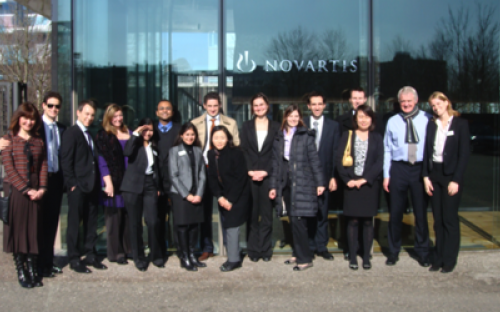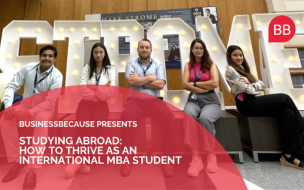What are your clubs main initiatives this year?
The main initiatives this year involves bringing a healthcare elective to the London Business School portfolio of courses. Additionally, aside from our flagship event, Annual Global Healthcare Conference, we will hold events such as the Healthcare Insights Series and Senior Manager Speaker events. The Insights series are panel events bringing in partner and managing director level individuals from the same sector. For example, one of the events is a healthcare consulting panel for which we have had Partners from McKinsey & Company, BCG, and ZS Associates. We do this type of event for healthcare finance as well as industry.
This year we will also be launching a Lunch and Learn Series, where first year MBA students have the opportunity to seek advice and ask questions of second year students. This gives first year students an inside and candid perspective of other student’s experiences from their past work and internships. We’ve held this type of event in the past and received exceptional feedback and have decided to expand it this year to hold different sessions for industry, consulting, and finance.
What proportion of your members are originally healthcare professionals?
Approximately 60% of club members have some sort of healthcare background. This includes individuals from a range of backgrounds: physicians, healthcare management consultants, entrepreneurs, investment bankers, regulators, R&D scientists, marketers, and those working in business development in the pharma industry, to name a few.
Who is the most successful alum you have had from the Healthcare club?
We have had a number of very successful alumni who have graduated from the London Business School and now work in healthcare. Two that come to mind are David Pyott, the CEO of Allergan, and Glyn Edwards, CEO at both the Summit Corporation and BioIndustry Association. Our alumni have been extremely successful both in the UK and internationally, as you can see from the examples provided above. This is characteristic of a school and club who pride themselves in their diversity and international focus.
What is your club’s main event of the year?
Our flagship event is the Global Healthcare Conference and this year will feature a keynote address by Alex Gorsky, the CEO of Johnson & Johnson. This event brings together healthcare consulting, finance, industry, and government policy to discuss the key issues facing global healthcare.
Describe your main career trek to a leading healthcare company?
Every year we hold a trek to various pharmaceutical, biotechnology and medical technology companies across Switzerland. During the trek, students hear insights from members of the senior management team and get to network with alumni and senior managers at the company. This year we visited Abbott, Amgen, Johnson & Johnson, Novartis, Roche and a niche healthcare-consulting firm as part of the Swiss trek. The trek was highly successful and resulted in a number of the participants receiving internship offers from the companies that we visited.
We also host trips to local companies such as GlaxoSmithKline and GE Healthcare. In addition to our trips to large companies, we hope to increase the number of local treks (aside from our main trek to Switzerland) to smaller biotech and medical technology firms in the UK. We are also evaluating the possibility of treks outside of Europe such to the United States.
What is the most successful workshop or learning session you had this year? Can you explain how it worked?
Apart from the Global Healthcare Conference, our Insights events have been extremely successful and have received very positive feedback. Two such events were talks by the UK Managing Director of Eli Lilly and the UK General Manager for Abbott who shared their challenges and experiences with students. These types of events not only allow students to gain knowledge of the industry and how it works, but also gives them the opportunity to learn about career progression. Students often have countless questions on the factors involved in making the best career decisions and these kinds of events give students and inside view from individuals who have come from similar educational backgrounds.
Do you think you need to be a doctor to be successful in the healthcare industry?
Absolutely not! You don’t even need to have a science background to be successful in the healthcare industry. There are countless individuals who have been astoundingly successful in the healthcare sector. The recipe for success involves interest, motivation, and a willingness to learn. A number of students are career switchers who come from non-science backgrounds but then end up working in business development or strategy in a pharmaceutical company. This is just one example of the switch that students make. This year alone, we have at least five first year students who were consultants (most of them general management consultants) that are going to be interning with a pharmaceutical company for the summer.
RECAPTHA :
78
c5
a3
19







